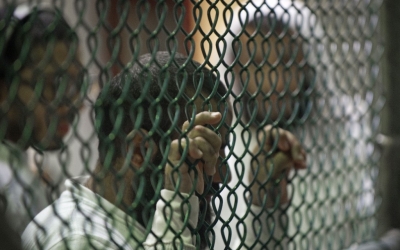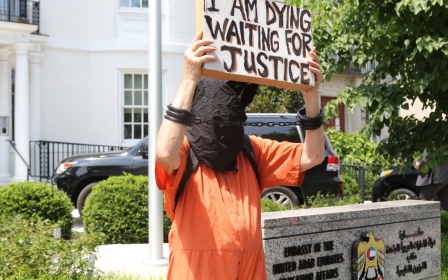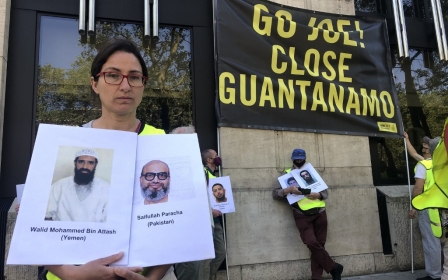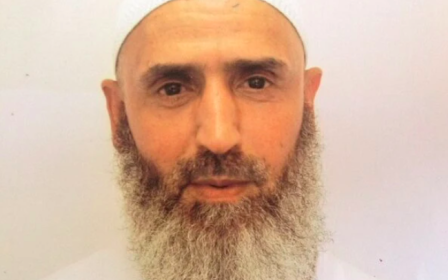Guantanamo Bay: Sixty-year old Iraqi detainee suffering from paralysis
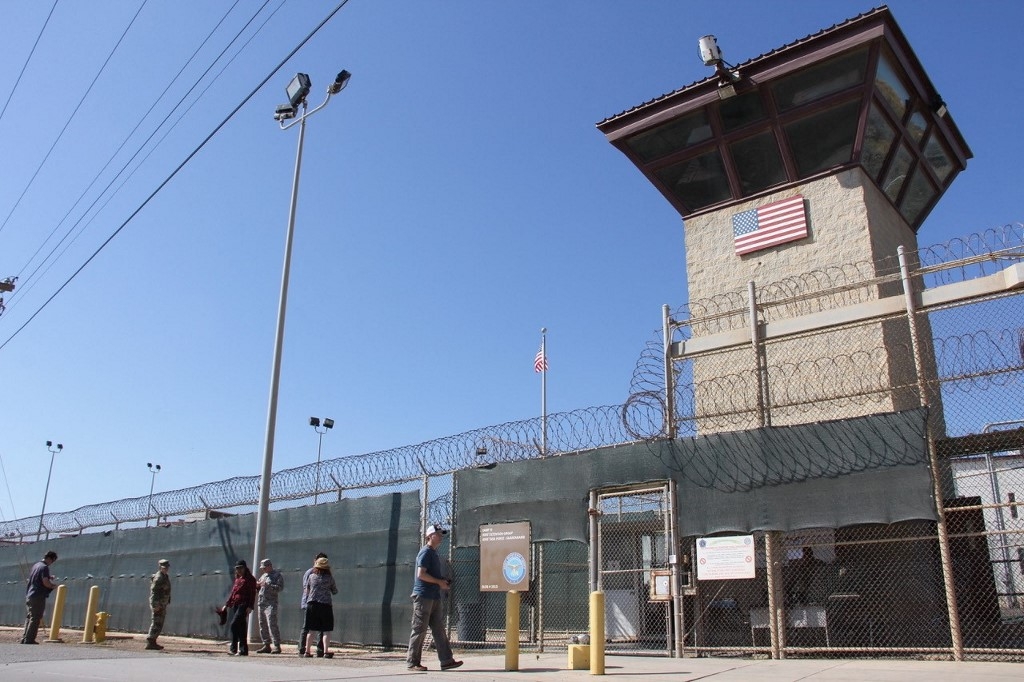
A US Marine Corps judge on Friday ordered Guantanamo Bay prison's medical staff to submit an emergency report regarding an Iraqi detainee who has suddenly suffered from paralysis in his legs.
Abd al-Hadi al-Iraqi, 60, had a medical emergency and was reported to have lost feeling in his lower legs on Wednesday evening and is not able to walk or stand, his lawyer told Middle East Eye.
"It's my understanding that right now he can't walk," his lawyer Susan Hensler told MEE.
In an emergency notice filed on Thursday by defence lawyers and seen by MEE, Hadi was informed that he required specialist care, but such "treatment was not available for several weeks".
'If he can't walk, he should be in a hospital, not a cell'
- Scott Roehm, Center for Victims of Torture
Scott Roehm, who runs the Washington office for the Center for Victims of Torture (CVT), noted that if such a medical case were taking place in the US, a person would see a specialist "within hours".
New MEE newsletter: Jerusalem Dispatch
Sign up to get the latest insights and analysis on Israel-Palestine, alongside Turkey Unpacked and other MEE newsletters
"If he can't walk, he should be in a hospital, not a cell," Roehm told MEE, adding that other detainees have had to carry Hadi in order for him to use the bathroom.
The judge in Hadi's case, Lt Col Michael Zimmerman, said in ordering the report that the latest health update filed with the court on 2 September listed "no significant change in the Accused's medical status".
A US Southern Command spokesperson told MEE in an email that "we do not discuss individual medical treatment of detainees".
"If emergency medical needs exceed what is immediately available by the JTF-GTMO JMG [Joint Task Force Guantanamo Joint Medical Group], the appropriate resource procurement is determined on a case-by-case basis," the spokesperson said, adding that medical treatment of detainees was similar to that of US service members.
Guantanamo's physically disabled
Hadi was captured in Turkey in 2006 and held by the CIA as a "high value detainee" before being transferred to the prison at Guantanamo Bay the year after. He is accused of commanding al-Qaeda and Taliban forces in Afghanistan that committed war crimes against US and allied forces.
Hadi, who says his real name is Nashwan al-Tamir, has a degenerative spinal condition, and is among the most physically disabled of the 39 detainees at the prison.
According to CVT, he was diagnosed with spinal stenosis in September 2010. However, he did not receive surgical treatment until his condition became severe seven years later, when he "began to experience a significant loss of sensation in both of his feet and a loss of bladder control".
He has since received four additional surgeries performed at Guantanamo by off-island specialists, but continues to suffer from the condition and may require additional surgery.
Hadi relies on a wheelchair and walker inside the prison. He also has a padded geriatric chair and a hospital bed for court, the latter of which is kept for when heavy painkillers cause him to fall asleep.
The United States is required to provide adequate health care to detainees under the Geneva Conventions, but because the US law forbids their transfer to the country, the Pentagon brings in medical experts and equipment to Guantanamo for the prisoners.
In 2019, a judge ruled against Hadi's case for improved medical care and oversight from a civilian doctor.
Roehm said that Hadi's situation highlights the US government's problem with dealing with the medical conditions of aging and disabled detainees at the prison.
"[The Department of Defense] is either unwilling or unable, or both, to deal with these kinds of medical issues, which in some ways isn't surprising. The prison wasn't stood up to be a nursing home after two decades," Roehm told MEE.
"If the reports of what's happened here are accurate, it doesn't remotely satisfy the standard of care that all men are supposed to receive at Guantanamo."
Middle East Eye delivers independent and unrivalled coverage and analysis of the Middle East, North Africa and beyond. To learn more about republishing this content and the associated fees, please fill out this form. More about MEE can be found here.


